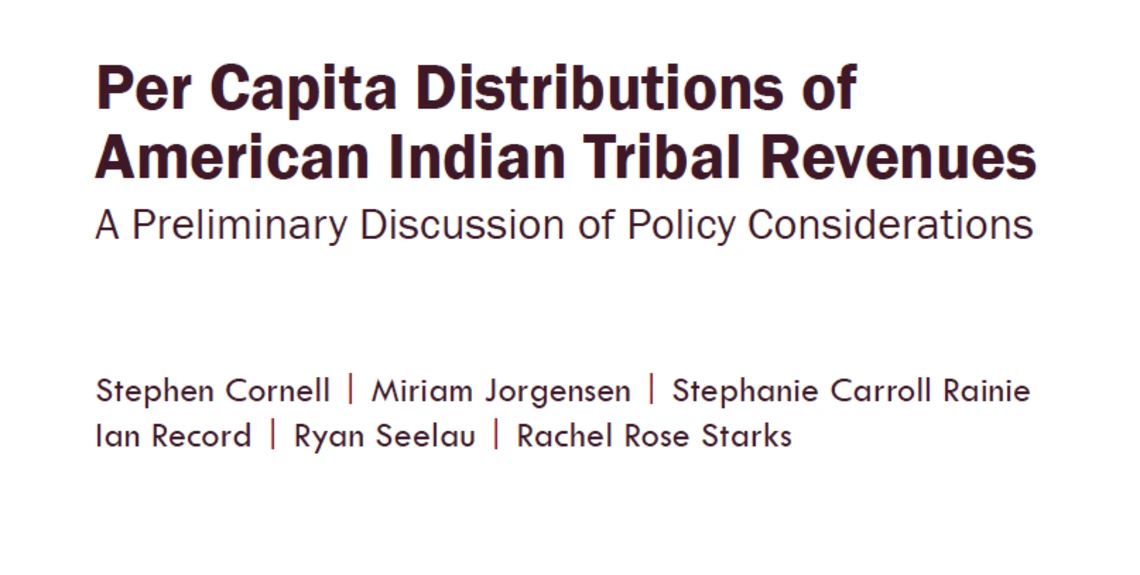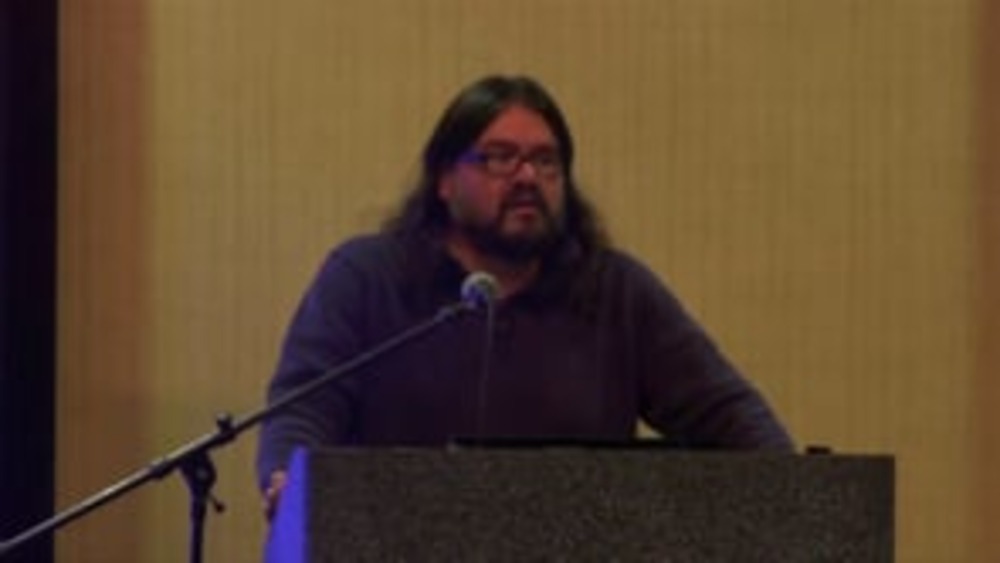This paper examines policy considerations relevant to per capita distributions of tribal revenues. It offers Native nation leaders and citizens food for thought as they consider whether or not to issue per capita payments and, if they choose to do so, how to structure the distribution of funds and make that distribution serve tribal goals. We describe this as a "preliminary discussion" because it represents only the first stage of an ongoing research project examining tribal per capita distribution policies and their effects.
Additional Information
Cornell, Stephen, Miriam Jorgensen, Stephanie Carroll Rainie, Ian Record, Ryan Seelau, Rachel Rose Starks. "Per Capita Distributions of American Indian Tribal Revenues: A Preliminary Discussion of Policy Considerations." Published for the 2007 National Congress of the American Indians Annual Convention. Native Nations Institute for Leadership, Management and Policy, The University of Arizona. Tucson, Arizona. November 2007. Paper.




